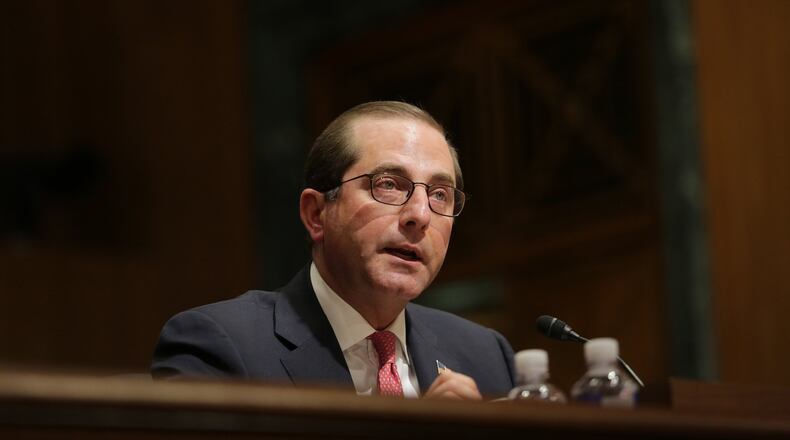The Trump administration on Tuesday laid out its plan to allow yearlong health insurance coverage that is skimpier, noncompliant with Obamacare standards — and far less expensive. Obamacare advocates reacted in dismay, while some Georgia insurance agents rejoiced.
“It’s awesome,” said Tim Deter, an agent in Atlanta. “They should have never changed it in the first place.”
Dan McBrayer, an agent in Carrollton called the Trump plan “a positive thing for people where it’s the only thing they can possibly afford.”
The rules take one of the strongest swings yet at the underpinnings of the Affordable Care Act, also known as Obamacare. The proposal would allow "short-term" plans, which now are only available when someone has an insurance gap of up to three months, to last for an entire year.
The companies would be allowed to exercise all kinds of flexibility they used to have on the individual market and no longer do on yearlong plans: to deny coverage for pre-existing conditions, to charge more for sicker people, and to exempt some services, such as prescription drugs, from coverage at all.
The administration guesses that the new plans would lure 100,000 to 200,000 additional Americans away from the individual market.
That’s a problem, said Laura Colbert, the director of the patient advocacy group Georgians for a Healthy Future.
“Middle-income consumers with pre-existing conditions who want to remain in the marketplace where they’re protected are going to see big increases in premiums if a lot of healthy people leave to buy short-term plans,” she said.
Colbert fears a two-tiered insurance market: One would offer traditional Obamacare protections for essential benefits where people get what they need but is even more expensive. And for people willing to take a risk, there would be "one that's going to be cheaper, with less protections, that's going to be attractive to healthy people — until they get sick."
Bill Custer, a health care analyst at Georgia State University, said it’s hard to tell whether it would be such a big deal.
If insurers decide too few customers will be interested, he said, they might not put effort into offering a variety of plans. So the impact would be further limited.
But if the market for short-term plans proves popular, Custer said, all the impacts feared by advocates such as Colbert could happen. Prices on the main market would go up. The number of individuals who don’t buy any insurance could increase. The burden of bills for care that is not covered will fall on people and on their caregivers and hospitals.
Custer is bucking for the market to be too small to make much of a difference. “In either case the rule does not increase the number of Georgians with health insurance,” he said.
One group that will be happy is insurance brokers, according to Kaiser Health News, because they often pay higher commissions than ACA plans. Insurers like them, too, because their profit margins are relatively high, and they’re not held to the ACA requirement that they spend at least 80 percent of premium revenue on plan members’ medical care.
The rule now goes up for 60 days of public comment. The administration specifically asked people to comment on how it can allow people to renew the plans annually.
It will be up to state regulators to work with health insurance companies to decide how to apply the rules in each state. But in Georgia the market is likely to see the flexibility. “There is nothing in Georgia law that prohibits these plans,” said Glenn Allen, a spokesman for the state Department of Insurance.
Never miss a minute of what's happening in Georgia Politics. Subscribe to PoliticallyGeorgia.com.
About the Author
Keep Reading
The Latest
Featured


